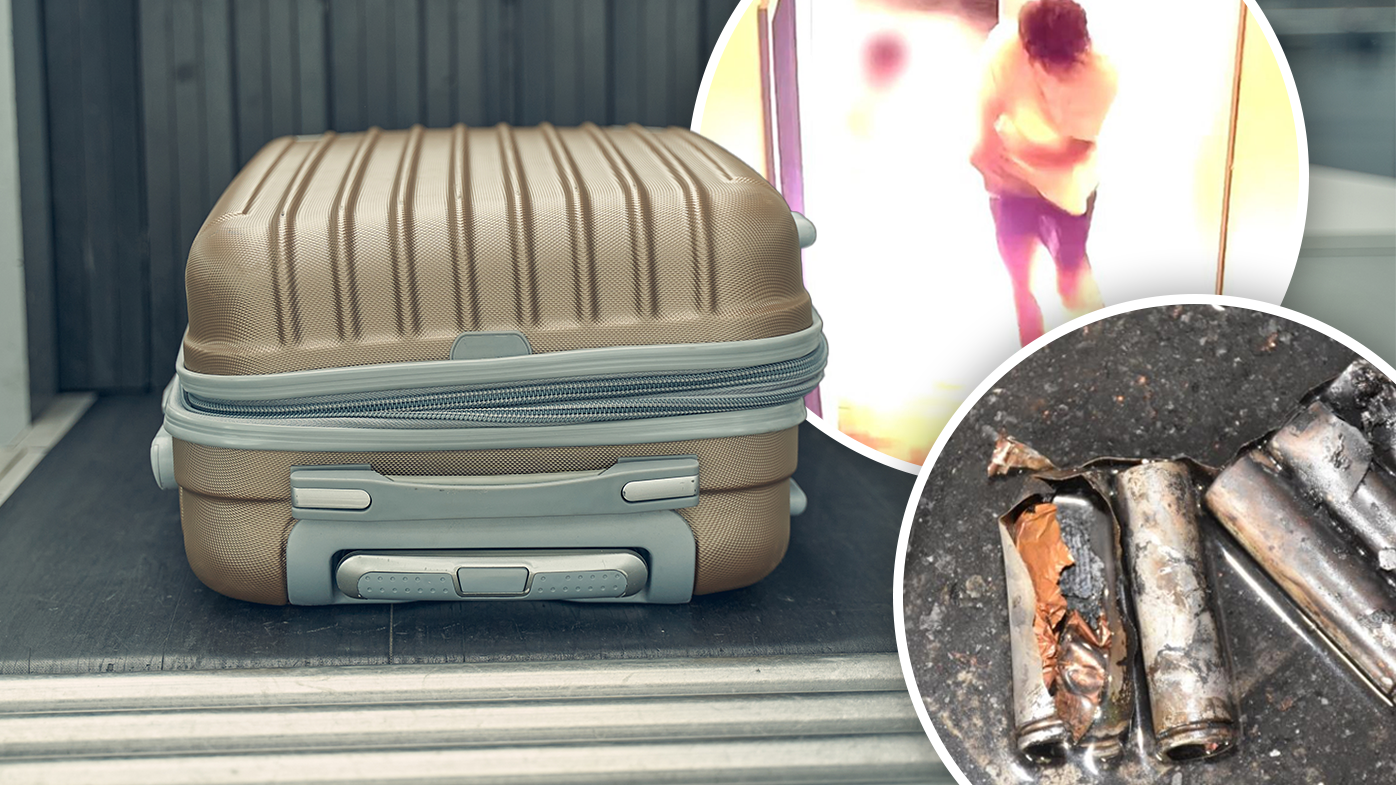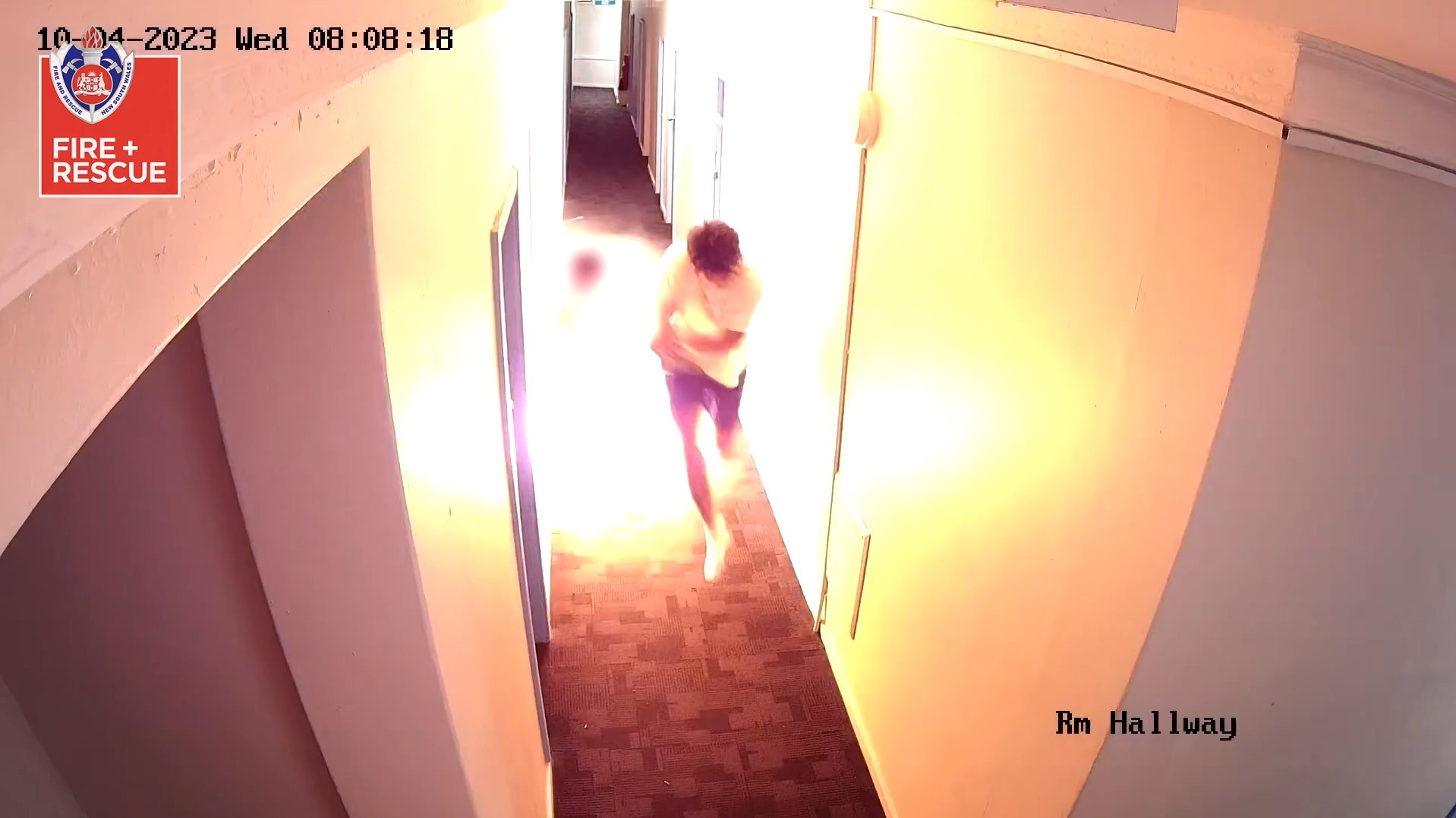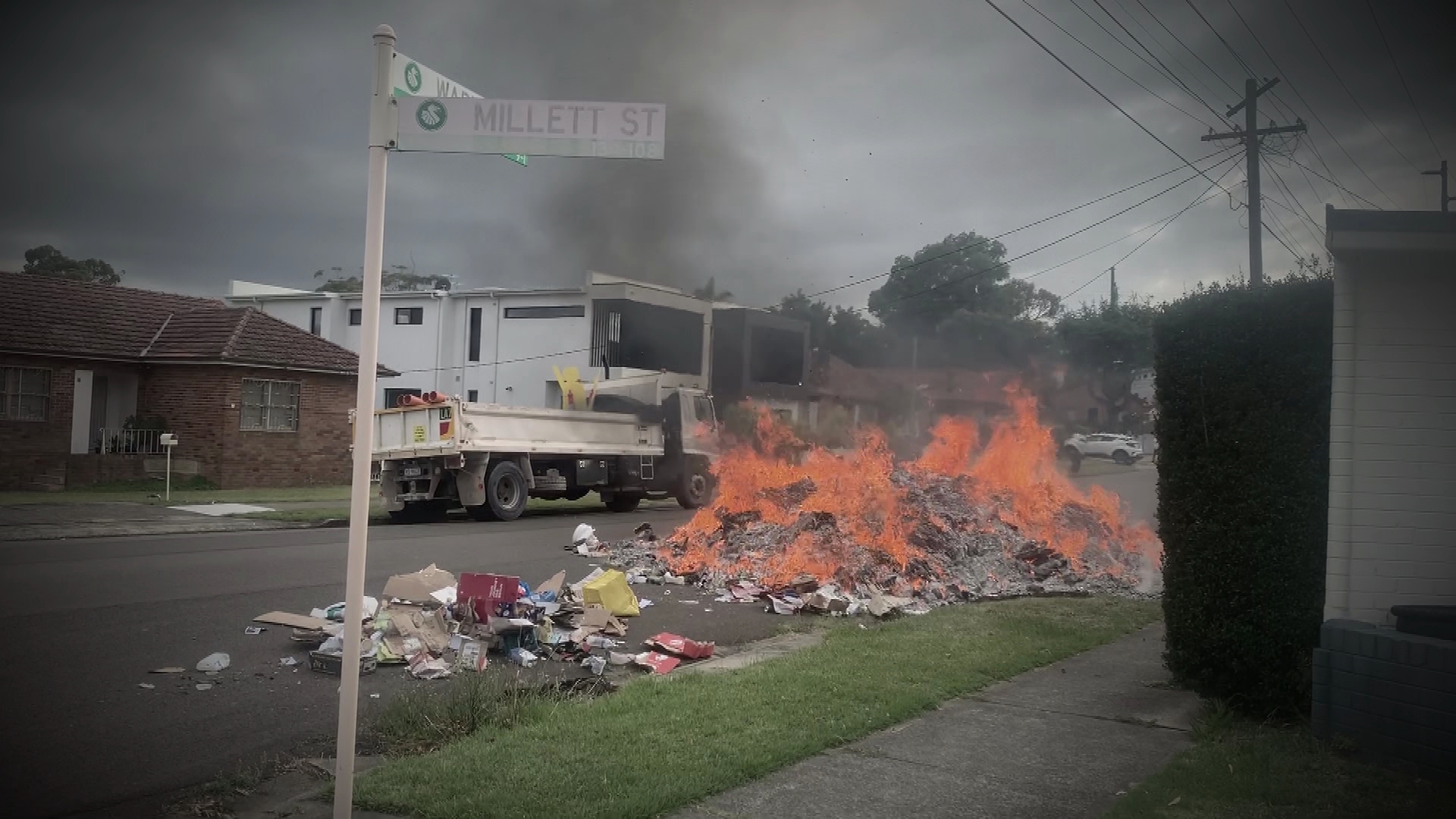An aviation expert is urging airlines to do more to educate the public about the risk of lithium battery fires to prevent serious mid-air incidents from occurring.
Lithium-ion battery fires are becoming frequent both on the ground and in the air as more devices are made, increasing the risk they can overheat or explode if they are used, charged or disposed of incorrectly or if they are damaged.
US Federal Aviation Administration data from May showed there had been at least one lithium battery incident on a passenger plane each week since 2021, an increase of 42 per cent increase since 2018.
READ MORE: New Zealand airport evacuated after suspected bomb found
Are Australian airline passengers at risk?
Aviation expert Geoffery Thomas told 9news.com.au he believed passengers needed more education about the "serious issue".
"I don't think a lot of people understand that you simply cannot put them into checked bags, they must come with you on the aeroplane," Thomas said.
"So if there is an event, that can be dealt with whereas in the cargo hold there's a possibility that this fire suppression system will not be able to handle it, depending on circumstances."
Thomas said all cargo holds had a smoke sensor that activates extinguishers but the problem with lithium fires was that they were "incredibly intense".
"It's not just like a normal barbecue fire… they're difficult to put out," he said.
He said people really need to be aware of the dangers.
"It's incredibly important … that the batteries come out and you carry them with you on the aeroplane in your bags.
"I don't think the airline industry is doing enough to warn people of the dangers of lithium batteries."
READ MORE: Mystery Aussie wakes up $60 million richer after huge win
He believes Australia is seeing fewer lithium battery plane fires than the US for two reasons – America's airline industry is far bigger than Australia's there is even less awareness overseas.
A Civil Aviation Safety Authority (CASA) spokesperson said Australian airline operations had procedures in place and all cabin crew were trained to "manage overheating and combustion incidents involving portable electronic devices".
"CASA works closely with airlines and other regulators on emerging risks presented by advances and the expanded use of technology," the spokesperson said.
"Operators communicate the risks of certain dangerous goods carried by passengers through information displayed on their website and via dangerous goods signage located at key points within the terminal."
Two cargo planes have crashed due to lithium battery fires.
Two were killed after a Boeing 747-400F crashed after taking off from South Korea in 2011 and the other occurred in 2010 on a UPS plane in the United Arab Emirates, which also killed two crew members.
More information on carrying lithium batteries on flights can be found here.
How common are lithium battery fires on the ground?
New data from the Australian Consumer Competition Commission (ACCC) shows incidents on the ground appear to be increasing – and are serious when they do occur.
One Australian has died in a lithium-ion battery fire and the ACCC has received 231 product safety reports relating to lithium-ion batteries in the past five years.
There have been 23 product recalls affecting about 89,000 products on the market.
READ MORE: Father-of-five denies attack on Danny Lim
"We are concerned by increasing reports of lithium-ion battery fires resulting in property damage and serious injuries, including burns, chemical exposure and smoke inhalation," ACCC Deputy Chair Catriona Lowe said.
"Managing lithium-ion battery safety is complex and government, industry and consumers must tackle the challenge together," Lowe said.
"Our report makes recommendations to better protect consumers and includes practical advice to reduce the risks associated with these batteries.
"Consumers should avoid mixing and matching chargers, unplug products when fully charged and charge batteries in a cool, dry place and away from combustible materials like beds, lounges or carpet.
"Check your lithium-ion batteries for overheating signs of swelling, leaking or venting gas and immediately stop using your product if these signs are present."
READ MORE: Major flooding looms in Victoria as residents flee homes
The fires are common in garbage trucks and waste facilities where the batteries can be exposed to heat, moisture or being crushed.
This is why it's important to store or dispose of them safely.
The ACCC said the batteries were "integral" to achieving Australia's transition to net zero emissions.
The consumer watchdog estimates households will have an average of 33 devices by 2026.
An ACCC national survey found 45 per cent of people used aftermarket chargers and 39 per cent did not know how to correctly dispose of them.
For more information on how to dispose of batteries correctly, you can visit these two websites recyclemate.com.au and bcycle.com.au.






